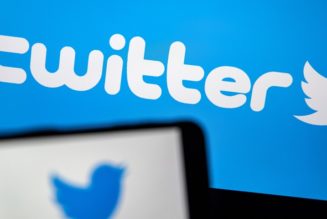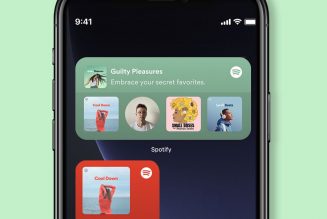
Programming note: It’s time for our summer vacation! The stretch between January and today is the longest uninterrupted period we have ever written The Interface, and so we’re taking a break to recharge. We return August 17th.
On any other day, the memo that Kevin Mayer published Wednesday might have been the talk of the tech world. TikTok’s new CEO, who was thrust into a crisis over the future of the Chinese-owned app from the moment he took the job, has quickly emerged as the company’s top diplomat.
In his blog post, he came bearing economic gifts for the country that is currently blocking his app from federal and military devices, and threatening to ban it completely — as India recently did. Mayer promised to expand a fund for creators from $200 million to $1 billion. He said the company would hire 10,000 Americans — no small thing during a global recession.
And most intriguingly, Mayer said TikTok would do something that lawmakers have often asked of other social networks, but so far none have even suggested they would consider: allowing regulators to inspect the company’s algorithms, which select which videos and accounts to promote throughout the app. Mayer wrote:
We believe our entire industry should be held to an exceptionally high standard. That’s why we believe all companies should disclose their algorithms, moderation policies, and data flows to regulators. We will not wait for regulation to come, but instead TikTok has taken the first step by launching a Transparency and Accountability Center for moderation and data practices. Experts can observe our moderation policies in real-time, as well as examine the actual code that drives our algorithms. This puts us a step ahead of the industry, and we encourage others to follow suit.
The idea that algorithms ought to be open for inspection comes largely from Republicans. Senators including Josh Hawley (R-MO) have called for external audits of social network algorithms, nominally to examine them for signs of “censorship.” (The idea that conservative voices are being censored during a time when they enjoy the broadest audience, and some of the widest support, in human history has become an article of faith for the Republican Party.)
We would all benefit, I think, from having greater insight into how social networks choose what to show us in our feeds. It has long unsettled me that not a single engineer at Facebook, or Twitter, or YouTube, can tell me for sure why any particular post shows up in the feed where it does — they can only describe for me a series of statistical probabilities, with many attendant blindspots that we learn about only years later.
Not that they would be able to explain things perfectly after inspecting TikTok’s algorithm, either. The company told me that while it would make its source code open for review, it would not share information about individual users with reviewers for privacy reasons. But it will give reviewers insight into the signals the app takes into account when choosing which videos to promote — a move that, the company hopes, will dispel fears that it will be used to push propaganda or influence campaigns at the direction of the Chinese Communist Party.
“You’ll be able to see what informs our content ranking system, and how that information is used to make recommendations,” said Michael Beckerman, a TikTok vice president and head of US public policy. “Clearly that’s something that our stakeholders, and certainly policy makers, have questions about broadly for the industry.”
The algorithms that inform that system are updated regularly, and so TikTok intends to keep an open door to a select set of policy makers and experts, Beckerman told me. (It also posted new tips for creators on Thursday, you really don’t have to add #fyp to every single post.) The original idea was for TikTok to invite people to a physical office to inspect its source code and review its content moderation policies; the pandemic has forced the company to reimagine the Transparency and Accountability Center as a virtual experience. In time, though, the company hopes to have visitors again.
There are risks to opening up the source code, such as giving creators too fine a sense of what will go viral, allowing them to game the system. That’s part of the reason a virtual field trip to the accountability center won’t be available to everyone. But the company believes that risk is outweighed by the potential trust it could earn by showing that it has nothing to hide, at least when it comes to content recommendation. “Seeing is believing,” Beckerman said.
It is likely only because TikTok’s position in the United States is so fraught that it would even consider opening up its source code to regulators. And yet even just by introducing the idea, the company has meaningfully shifted the window of what we might consider possible. For that, I’m grateful.
Then again, trust is in short supply everywhere these days, and even if regulators were to accept this compromise as a condition for letting TikTok continue to operate, I’m skeptical it would totally alleviate regulators’ concerns. Just because you know how a video gets promoted doesn’t guarantee you that some shadowy force isn’t working behind the scenes to put a thumb on the scale. It’s hard to prove a negative.
“We’ve had the conversation internally [about whether] someone could come in and say, ‘that’s fake code,’” Beckerman said. But “legitimate researchers and the people coming in will know that it’s real.”
And what if that still doesn’t convince people? Then TikTok will likely be forced to sell. The reported valuation of the app — $50 billion — is stratospheric, at 50 times its projected earnings. It’s hard to imagine anyone but a giant affording that purchase — and hard to imagine regulators in a time of antitrust approving it.
Which might make the middle ground more attractive to everyone, lawmakers included. If TikTok is to survive in America, it has to find a way to earn officials’ trust. Opening up its algorithm is the boldest move the company has made to date, and it could be one of its best.
After the hearing
We’re a day out from the antitrust event of the summer, and I’m still catching up on all the reporting and commentary that has come out since. Let’s take a quick look at what people are saying.
The most interesting stories to come out of the hearing are what people found among the 1.3 million documents collected by the House antitrust committee. Like Mark Gurman writing about Apple’s sweetheart deal with Amazon to get the Prime Video app onto the iPhone. Or Jay Peters unearthing the emails in which Steve Jobs decreed that there would be no third-party bookstore on the iPhone. Or Avery Hartmans, sharing all the texts between Kevin Systrom and Mark Zuckerberg leading up to the acquisition of Instagram in Business Insider.
Or, from today, Adi Robertson looking through documents from Facebook, where in 2012 Mark Zuckerberg worried that rivals were building faster by copying rivals:
A chain of messages starts with Zuckerberg recounting a meeting with the founders of Chinese social networking app Renren. “In China there is this strong culture of cloning things quickly and building lots of different products,” he wrote. “Seeing all this and the pace that new mobile apps seem to be coming out from other companies makes me think we’re moving very slowly. … I wonder what we could do to move a lot faster.”
Other employees, some of their names redacted, agreed that “copying is faster than innovating,” even if they worried it would give Facebook a bad reputation in the industry. “We spend a lot of time on products and iterations on products that are not that used,” said one person. “If you gave the top-down order to go ahead, copy e.g. Pinterest or the gaming dynamics on Foursquare … I am sure [a] very small team of engineers, a [product manager], and a designer would get it done super quickly.”
“I would love to be far more aggressive and nimble in copying competitors at the interface / last mile level,” said another. “Let’s ‘copy’ (aka super-set) Pinterest!”
For whatever reason, Facebook never did really copy Pinterest. Maybe someday!
Elsewhere, there was commentary. Many writers made the point that lawmakers at least seem united on the idea that Big Tech has become too powerful; here is Alex Sherman making that point in CNBC and Franklin Foer doing the same in The Atlantic.
In the Washington Post, Geoffrey Fowler looked at the sweet little lies every CEO tells Congress. (“We’re not even that big!”) Kevin Roose argues that gaslighting was the main theme of the whole affair.
What’s next? The antitrust committee is expected to issue a report with recommendations for legislation, and legislation seems like to follow. There are also now antitrust investigations underway against the giants by various permutations of the Department of Justice, the Federal Trade Commission, and state attorneys general.
Some writers thought a smart take about the hearing would sound something like: “who cares, this won’t change anything.” Those writers seemed to forget that the hearing was a middle step — one from which many possible endings could still result.
The Ratio
Today in news that could affect public perception of the big tech platforms.
Trending up: Twitter is supporting a campaign aimed at stopping internet shutdowns. Targeted shutdowns have been used in recent months to silence dissent. (Twitter)
Trending down: The fees that Amazon imposes on sellers make it nearly impossible for them to sustain a profitable business, according to a report from the Institute of Local Self-Reliance. But Amazon’s monopoly ensures there’s an endless stream of people willing to try. (Institute for Local Self-Reliance)
Governing
⭐ European regulators are drafting new laws aimed a curbing the power of the big tech companies in a way that previously regulations have not. One bill would make it illegal for Amazon and Apple to give their own products preferential treatment over those of rivals. Here’s Adam Satariano at The New York Times:
Europe has embarked on its legal blitz just as the United States has started flexing its own tech regulatory muscles. On Wednesday, the chief executives of Amazon, Apple, Google and Facebook were grilled by lawmakers in a congressional hearing to scrutinize their power. All defended themselves against criticism from Democrats about anticompetitive business practices and accusations from Republicans that they were muzzling conservative voices. On Thursday, all four companies showed their financial muscle by reporting billions of dollars in profits and surging revenue. […]
If the proposed laws in Europe are enacted, the policies could lead to a major overhaul of the region’s digital economy, where there are more than 500 million consumers, by regulating the tech companies more like traditional industries such as telecommunications and finance.
Google’s $2.1 billion bid for Fitbit is facing a full-scale EU antitrust investigation. The company had recently offered to not use Fitbit’s health data to target ads, but apparently it wasn’t enough to quell regulator concerns. (Foo Yun Chee / Reuters)
Telegram has become the latest company to file an antitrust complaint to the EU for Apple’s App Store. The company is taking issue with Apple’s argument that its 30 percent App Store commission keeps it running. (Javier Espinoza / Financial Times)
Organizers of the Facebook ad boycott say the campaign is headed for Europe. They’ll be pushing for major regulatory reform, some of which is already happening. (Alex Heath / The Information)
The Chinese government, possibly in concert with Russia, manipulated former CNN star Larry King into spreading disinformation through a fake interview with a Russian journalist. (Renee Dudley and Jeff Kao / ProPublica)
China’s AI-powered surveillance tools are being exported to actual and would-be autocracies around the world. Those technologies are quickly being refined, allowing for all-encompassing surveillance systems that will allow more dictators to essentially plug and play. (Ross Andersen / The Atlantic)
Industry
⭐ The big tech companies reported monster earnings today, (Business Insider) even as the US economy saw the biggest quarterly plunge in activity ever (CNBC). Good thing we held that antitrust yesterday hearing, before any of these CEOs could take a question about it! Here’s where each company landed:
Apple’s said this year’s new iPhone models will arrive a few weeks later than they have in years past. The move means some revenue that typically comes at the end of September won’t come until the final quarter of the year. (Ina Fried / Axios)
Black Reddit moderators say hate speech and abuse are the norm. Some describe hearing “radio silence” from Reddit administrators in response to their concerns, though they’re cautiously optimistic that could change with the platform’s new content policies. (Margot Harris / Insider)
Moonbug Entertainment acquired two of the most popular kids channels on YouTube: Cocomelon, an animated show that is the most-viewed channel on the site, and Blippi, a program hosted by entertainer Stevin John. (Lucas Shaw / Bloomberg)
Things to do
Stuff to occupy you online during the quarantine.
John Lewis wrote a final prayer for America before his death. Read it. “Ordinary people with extraordinary vision can redeem the soul of America by getting in what I call good trouble, necessary trouble,” he said.
Read a co-founder of the Federalist Society explain why President Trump’s tweet suggesting that the election be delayed is cause for impeachment by itself. “Until recently, I had taken as political hyperbole the Democrats’ assertion that President Trump is a fascist,” Steven Calabresi writes. “But this latest tweet is fascistic and is itself grounds for the president’s immediate impeachment again by the House of Representatives and his removal from office by the Senate.”
Those good tweets
You can’t say covid-19 is so safe we can reopen schools then turn around and say it’s too dangerous to have an election.
— Mikel Jollett (@Mikel_Jollett) July 30, 2020
I hate that theres no way to know if you’re on track or not for your annual consumption of 8 spiders
— queen joheen (@queenjoheen) July 30, 2020
boss: you’re late
me: i saw a dog
boss: that’s what you said yesterday
me: he lives in my house
— james (@heybuddy_comic) July 29, 2020
Talk to us
Send us tips, comments, questions, and those good TikToks: casey@theverge.com and zoe@theverge.com.










